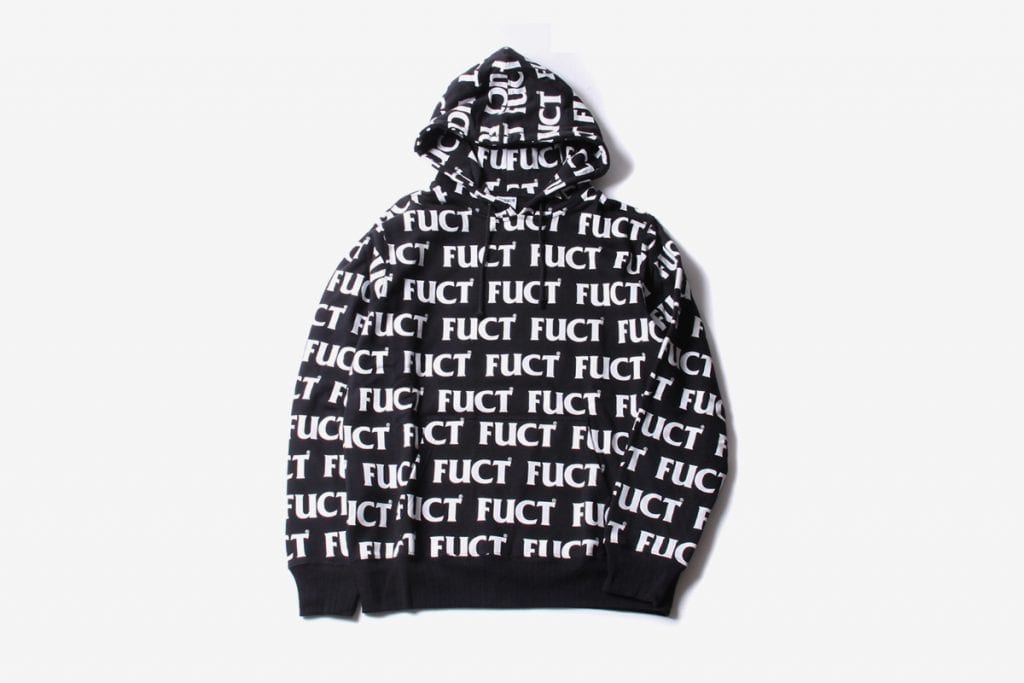“If you were to take a composite of, say, 20-year-olds, do you think that they would find this shocking?” That is one of the questions that Supreme Court Justice Ruth Bader Ginsburg posed on Monday during oral arguments in Iancu v. Brunetti, a case centering on a century-old ban on the federal registration of “scandalous” or “immoral” trademarks. The 86-year old justice was referring to the trademark at the center of the case, “fuct,” which is name of a famed Los Angeles-based streetwear/skatewear brand and what the U.S. Patent and Trademark Office (“USPTO”) and its appeal board – having refused to register the mark – says is the “past tense of the word f*ck.”
Counsel for Erik Brunetti’s brand and for the government, appeared before America’s highest court on Monday to argue their sides. According to Brunetti and his counsel, the brand’s name is pronounced with its individual letters “F-U-C-T” and stands for “Friends U Can’t Trust,” something that Justice Alito was not buying on Monday. “Be serious. We know what he’s trying to say,” he fired back at Brunetti’s counsel John Sommer, who argued, primarily that in furtherance of determining what marks are subject to registration, the USPTO determines what is offensive to the general public, and in the process, necessarily prefers some viewpoints over others.
That is significant, he asserted, as “viewpoint discrimination” is not a valid basis for the denial of a trademark application for registration, and thus, runs afoul of the free speech clause of the First Amendment.
The Federal Circuit agreed with this argument when it found that the immoral/scandalous trademark ban is an unconstitutional restriction on free speech. Judge Kimberly Moore, writing for the Federal Circuit’s three-judge panel in December 2017, stated, that while “fuct” is, in fact, vulgar, “the First Amendment protects private expression, even private expression which is offensive to a substantial composite of the general public. The government has offered no substantial government interest for policing offensive speech in the context of a registration program such as the one at issue in this case.”
The government, by way of its counsel Malcolm Stewart, asserts that the ban on such marks is not a restriction on speech, but rather a government-imposed condition on the availability of a government benefit (i.e., a trademark registration). The government is not stopping Mr. Brunetti from saying – or selling – what he wants, Stewart argued.
In terms of the “fuct” mark, itself, the government’s counsel asserted that it “would be perceived by a substantial segment of the public as the equivalent of the profane past participle form of a well-known word of profanity and perhaps the paradigmatic word of profanity in our language.”
“It’s hard to see what would be covered [by the registration ban] if this is not,” he also claimed.
As noted by the SCOTUSblog, the Brunetti, Iancu case “arises in the aftermath of, and perhaps as a natural consequence of, Matal v. Tam” – a case involving an Asian-American dance rock band called The Slants – in which the Supreme Court “struck down the registration bar for the other type of offensive trademarks: those deemed disparaging. In Tam, the Supreme Court held that trademarks are private, not government, speech, and an examiner may not refuse to register trademarks based on the particular viewpoint the trademarks express.”
In other words, “Speech may not be banned on the ground that it expresses ideas that offend,” Justice Samuel A. Alito Jr. asserted in connection with the Tam case.
The court is set to issue an opinion by the end of June. If the court’s ruling strikes down the “immoral” or “scandalous” trademark clause, as it is expected to, that “could open the door to First Amendment challenges to other arguably ‘speech-based’ parts of the trademark law,” complex intellectual property firm Cooley asserted early this year, including “the ban on marks that are likely to dilute the distinctiveness of others’ marks by ‘tarnishment’.”











